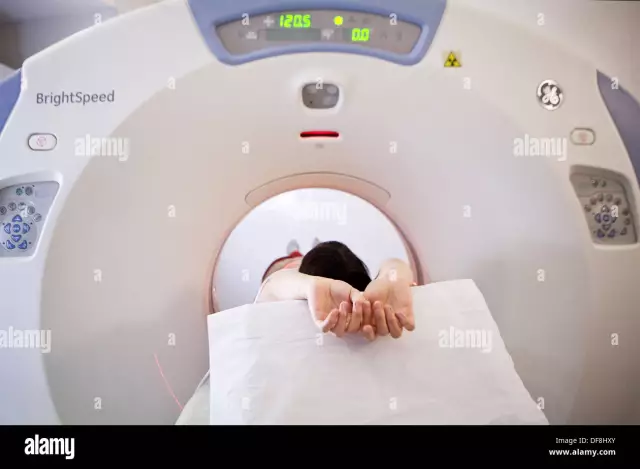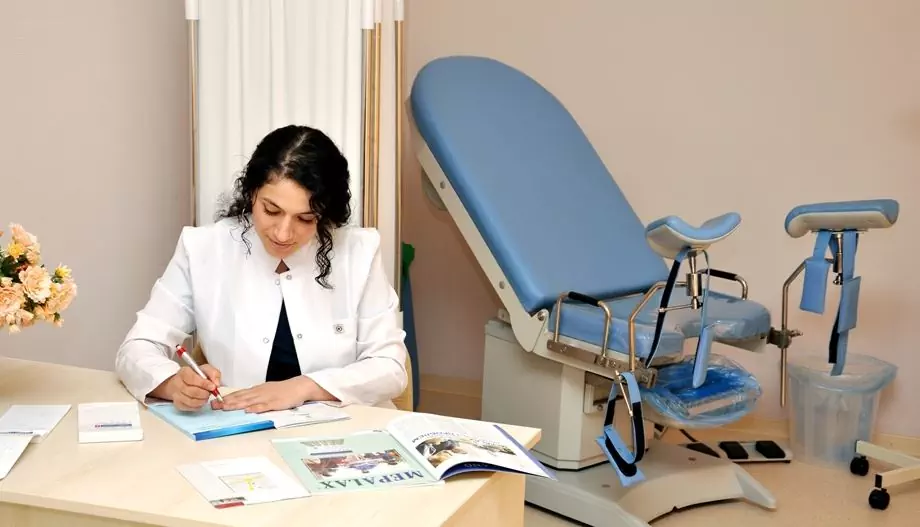- Author Rachel Wainwright wainwright@abchealthonline.com.
- Public 2023-12-15 07:39.
- Last modified 2025-11-02 20:14.
Rheumatologist
A rheumatologist is a doctor who deals with the issues of rheumatic diseases, their identification, treatment and rehabilitation. From the name of the specialty it may not be entirely clear what a rheumatologist treats. A rheumatologist is often responsible for various joints.

The most common diseases that fall within the purview of a rheumatologist include:
- rheumatic fever (rheumatism);
- acquired due to rheumatic fever valvular heart disease;
- diffuse connective tissue diseases (scleroderma, systemic lupus erythematosus, myopathies, etc.);
- arthritis (reactive, psoriatic, etc.);
- ankylosing spondylitis;
- vasculitis;
- gout;
- osteoarthritis;
- osteoporosis.
Rheumatic diseases are based on impaired immune reactivity, aggression directed at the body's own tissues. Most often, the musculoskeletal system suffers from this.
Patients come to an appointment with a rheumatologist mainly according to the referral and recommendations of a therapist or surgeon, to whom the patients have complained of disturbances in their health. Rheumatology is very closely related to other fields of medicine, since what a rheumatologist treats has similarities with many cardiological, infectious, hematological, and oncological diseases.
Features of the survey
The main complaints of patients with rheumatic diseases at an appointment with a rheumatologist are pain and discomfort in the joints. Sometimes patients are worried about morning stiffness in the joints, which is characterized by a temporary restriction of mobility in them immediately after sleep. There may be a temporary limitation of mobility in the neck, lower back, knees. The area around the affected joint often swells, and the pains recur at regular intervals, becoming chronic.
During a conversation with the patient, the rheumatologist also finds out the medical history. He may be interested in the infections suffered by the patient, his lifestyle, the nature of his diet, heredity for rheumatic diseases, the frequency of colds. Judging by the reviews of rheumatologists, quite often with rheumatic diseases, the parents of the patients also had joint problems, and the joints began to hurt at a relatively young age.
On examination, a rheumatologist sees changes in the area of the affected joint in the form of swelling or swelling, sometimes annular redness. In some cases, there may be no external manifestations of the disease.
In addition to examination, laboratory and instrumental confirmation of the diagnosis is required. The most informative, judging by the reviews of rheumatologists, are the following laboratory parameters:
- C-reactive protein;
- Rheumatoid factor;
- Antinuclear antibodies;
- Proteinogram;
- Uric acid;
- Neopterin.
A complete blood count can also show the presence of inflammation in the body.
For a rheumatologist, the following instrumental methods are computed tomography, magnetic resonance imaging, and densitometry.
Only on the basis of a comprehensive examination and exclusion of other diseases can the correct diagnosis and effective treatment be prescribed.
Pediatric rheumatologist
Rheumatology, as a branch of medicine, is subdivided more narrowly - according to the age factor. A pediatric rheumatologist is involved in the treatment of such diseases in children, since rheumatic diseases have characteristics of the onset, course and therapy characteristic of each age.
Rheumatic diseases affect people who often suffered from angina in childhood. The role of streptococci in the occurrence of this pathology has been proven. Heart defects form after rheumatic fever in childhood, if the child has not received etiotropic treatment for the infection (antibiotic).
As a therapy, a pediatric rheumatologist selects only medications that are allowed for children, calculating their dosage per kilogram of weight or body area.
Found a mistake in the text? Select it and press Ctrl + Enter.






